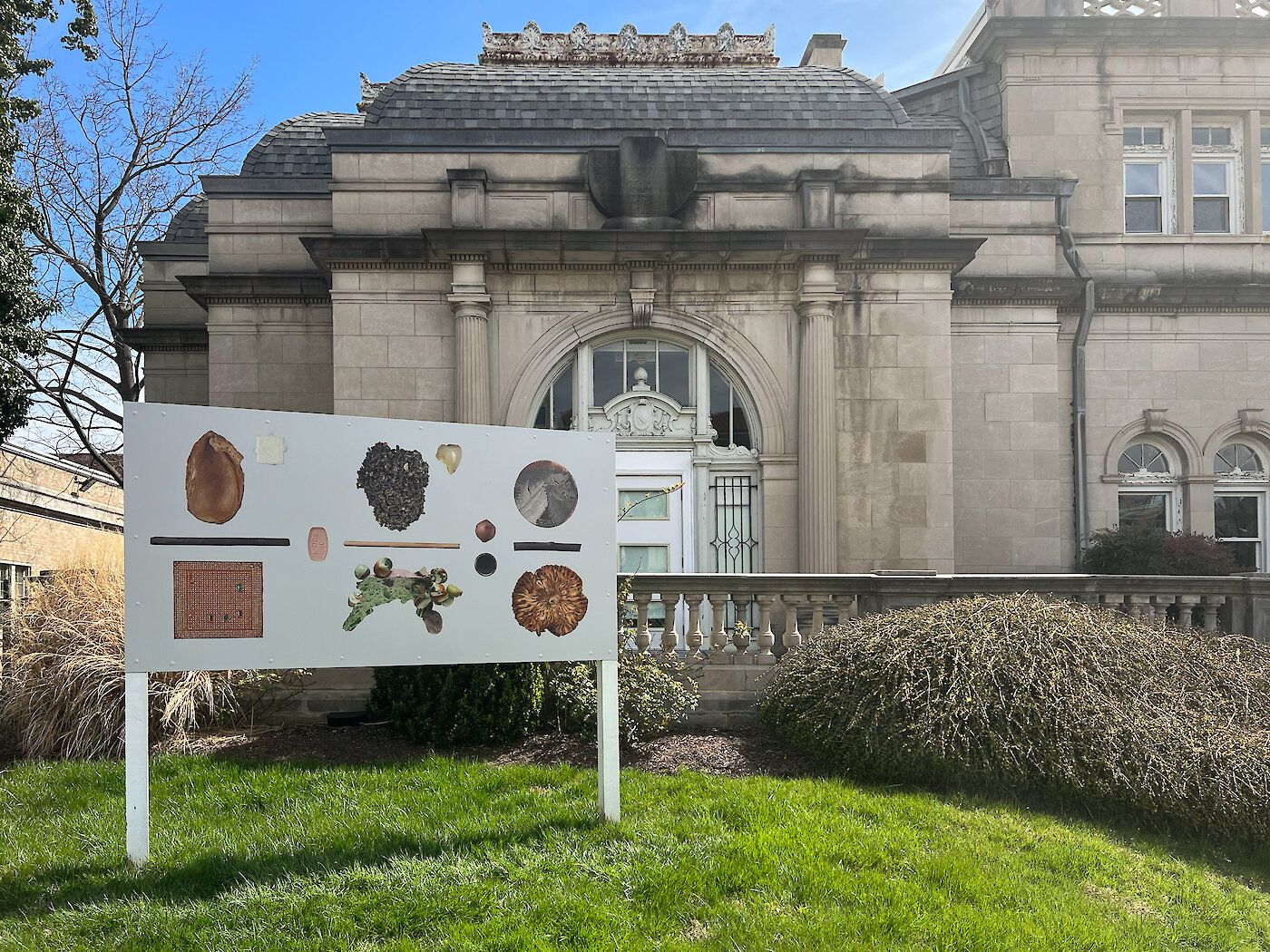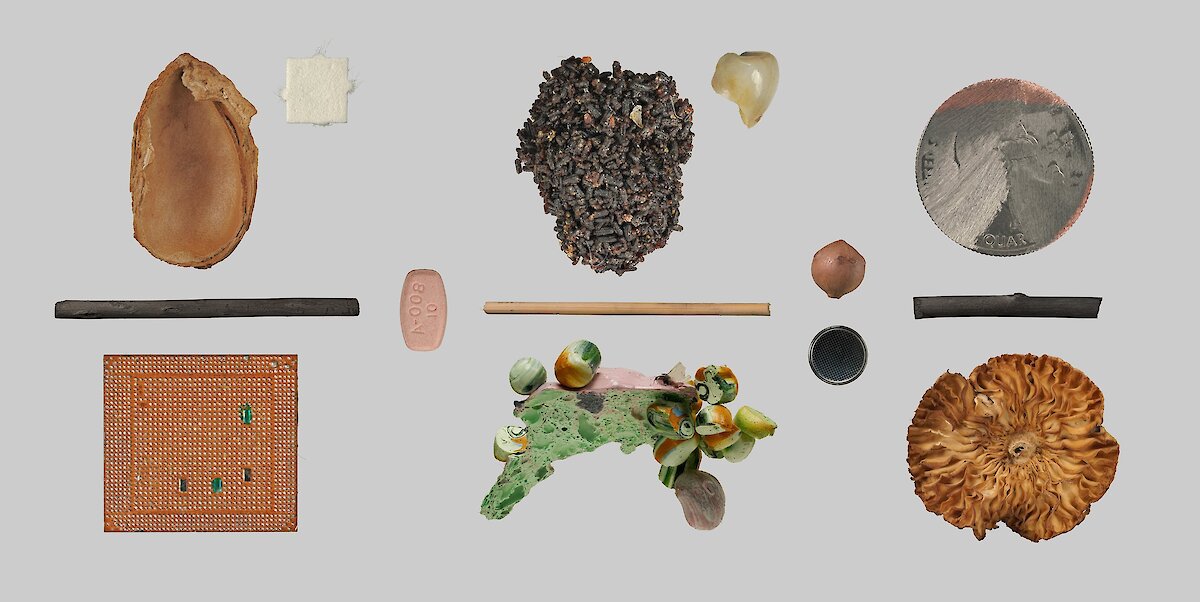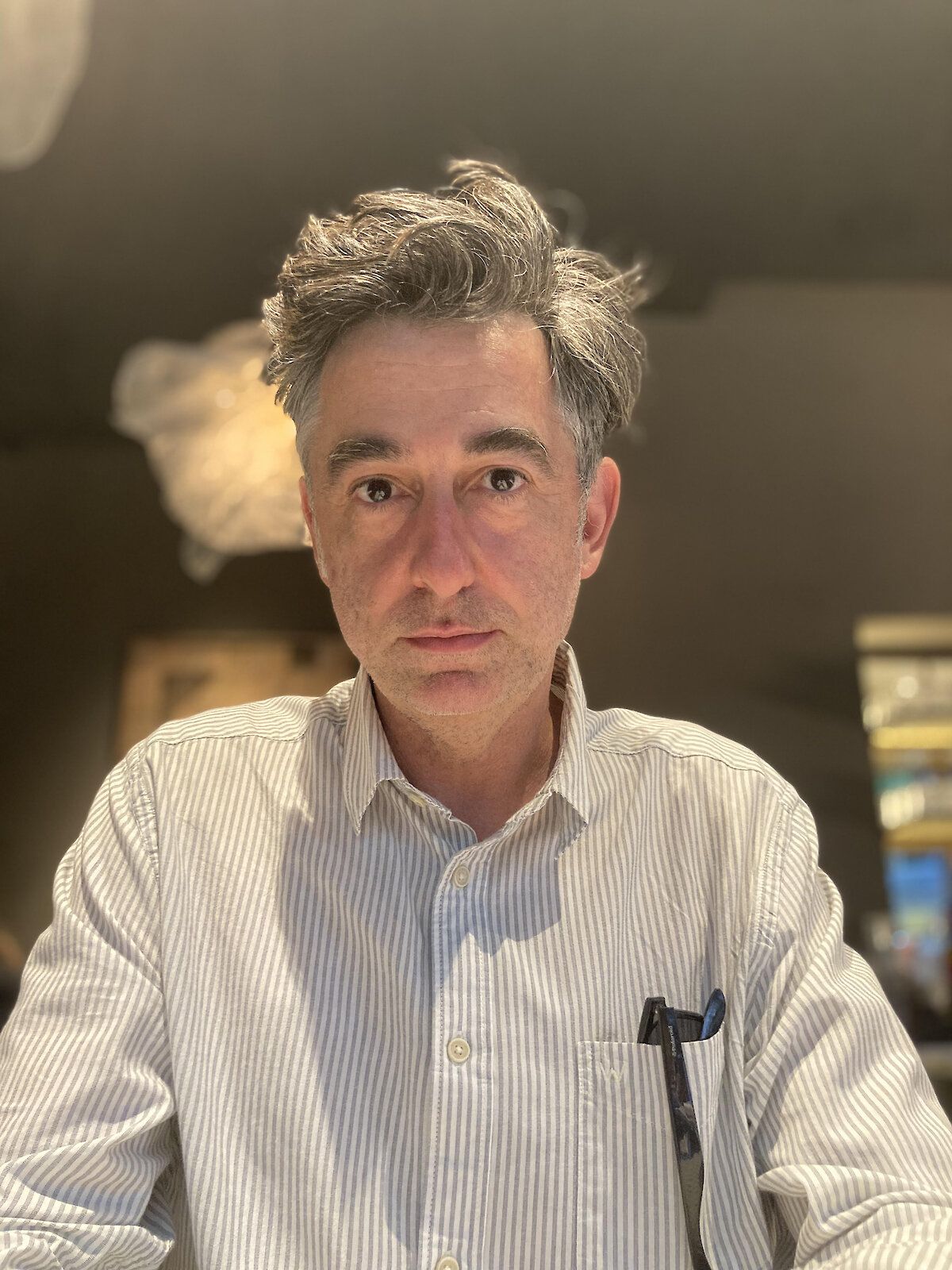Enrique Radigales
7 / 17

- Almond (Biofuel) raised to LSD (psycho-tool / Creativity)
- Divided [Charcoal (Biofuel)] by Printed circuit board with pollen grains (Biotechnology) plus [Amphetamine (Psycho-tool / Work, production)]
- Galleria mellonella’s feces in larval stage (Biorecycling) raised to Broken tooth (Experience, knowledge) divided [Wood (Biomaterials)] by
- Paint (Creativity) is equal [Seed (Future) and Lithium Battery (Energy Storage)] to Polished Dollar (Degrowth) divided [Charcoal (Biofuel)] by Mushroom (Mycorrhiza. Biofuel).
This is the reading of the equation where the artist Enrique Radigales substitutes the numerical and mathematical signs for symbolic elements related to biofuels, biomaterials or biorecycling, as well as for metaphors about the knowledge, creativity or work necessary to make a simple and rational use of energy.
In this way, he proposes a reflection on the future energy consumption needs of the planet.
Energy is the capacity of bodies to perform work and make changes in them or in other bodies, depending on their constitution (internal energy), their position (potential energy) or their motion (kinetic energy.) The total energy remains constant; it cannot be created or destroyed, only transformed. Because we have been able to control energy conversion processes, we can know apply them regularly to specific purposes. In order to gain this control, to achieve industrial growth, for instance, humankind needs to carry out a series of appropriations and extractions of natural resources in order to produce consumer goods, thus directly impacting the ecosystem: due to the amount of materials and energy used, where and over what period of time they are used, and especially whether or not the environment is able to regenerate itself. This process, called social or socioeconomic metabolism, which encompasses the exchanges of energetic and material flows carried out in a way or by a culture, is inherent in nature, of which humankind is also a part. The one thing to take into consideration would then be the need for these processes and the way they are carried out, whether in a balanced way or not.
Historically, the applied use of different energy conversions is directly linked to the concept of development, whether industrial, economic or social. Without denying the benefits of some of the solutions for all nature, the exponential growth of technologies is directly proportional to the inequalities between communities: whoever does or does not own this technology, the depletion of resources and the destruction of their environments. The social and natural imbalances they cause are the reason why the 2030 Agenda aims at “ensuring universal access to affordable, reliable and modern energy services” and “significantly increasing the share of renewable energy in the energy mix.” One of the clearest examples would be the benefits of using electric energy in a community and the problems of the gas emissions generated to obtain it.
And this is why with this visual equation, Enrique Radigales underlines the importance of innovation in the processes of imagination when dealing with resources and energies, as well as the urgency of thinking that so much controlled energy generation is essential. It is a formula that invites us to rethink not only these new energy sustainability technologies, but also the lifestyles and types of relationships that require them.
The man who is not content with little,
is content with nothing.
The title, a direct quote from the Greek philosopher Epicurus of Samos, is an invitation to a voluntary simplicity and an unfailingly degrowth thought, the same one urged by Henry David Thoreau, Gandhi or Hans Jonas. The ideas of the Austrian thinker Ivan Illich, fundamental for the environmental movements, summarize this concept of “the necessary limitation of our consumption and production and the cessation of our exploitation of nature and labor by capital,” not to “return to a life of deprivation and toil. On the contrary, they give rise to the liberation of creativity, renewal of conviviality, and possibility of leading a worthy life” (Latouche, Serge. The society of frugal abundance. Contradictions and controversies of Degrowth. Icaria, Barcelona, 2012.) Therefore, as the artist himself explains, “the final result of this symbolic calculation represents, as a metaphor for degrowth, a quarter dollar coin whose relief has been sanded to almost nothing, and in the lower part of the division we find a fungus as a symbol of the new mycorrhizal biofuels.”
Keywords: degrowth, voluntary simplicity, sober living, frugal abundance, self-limitation.

